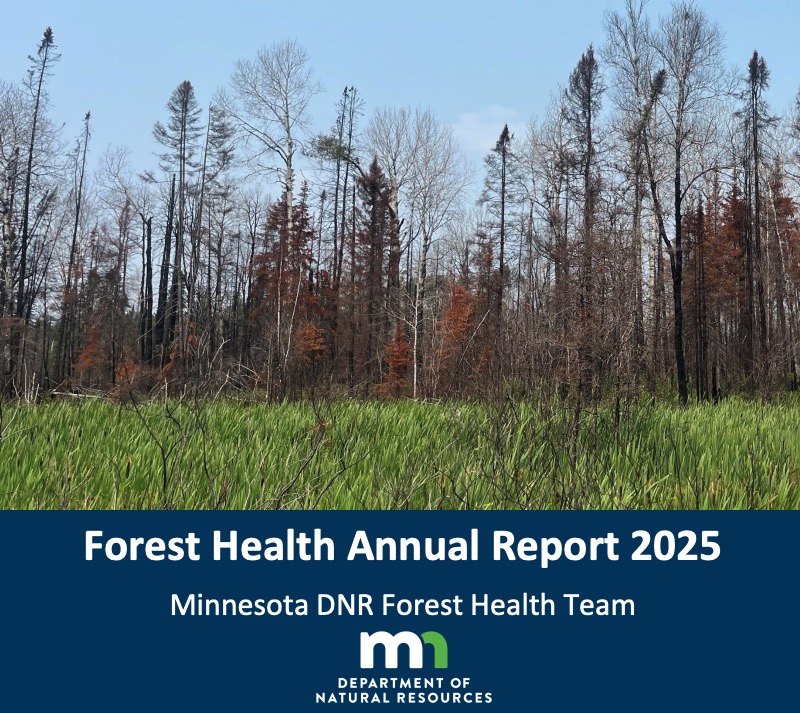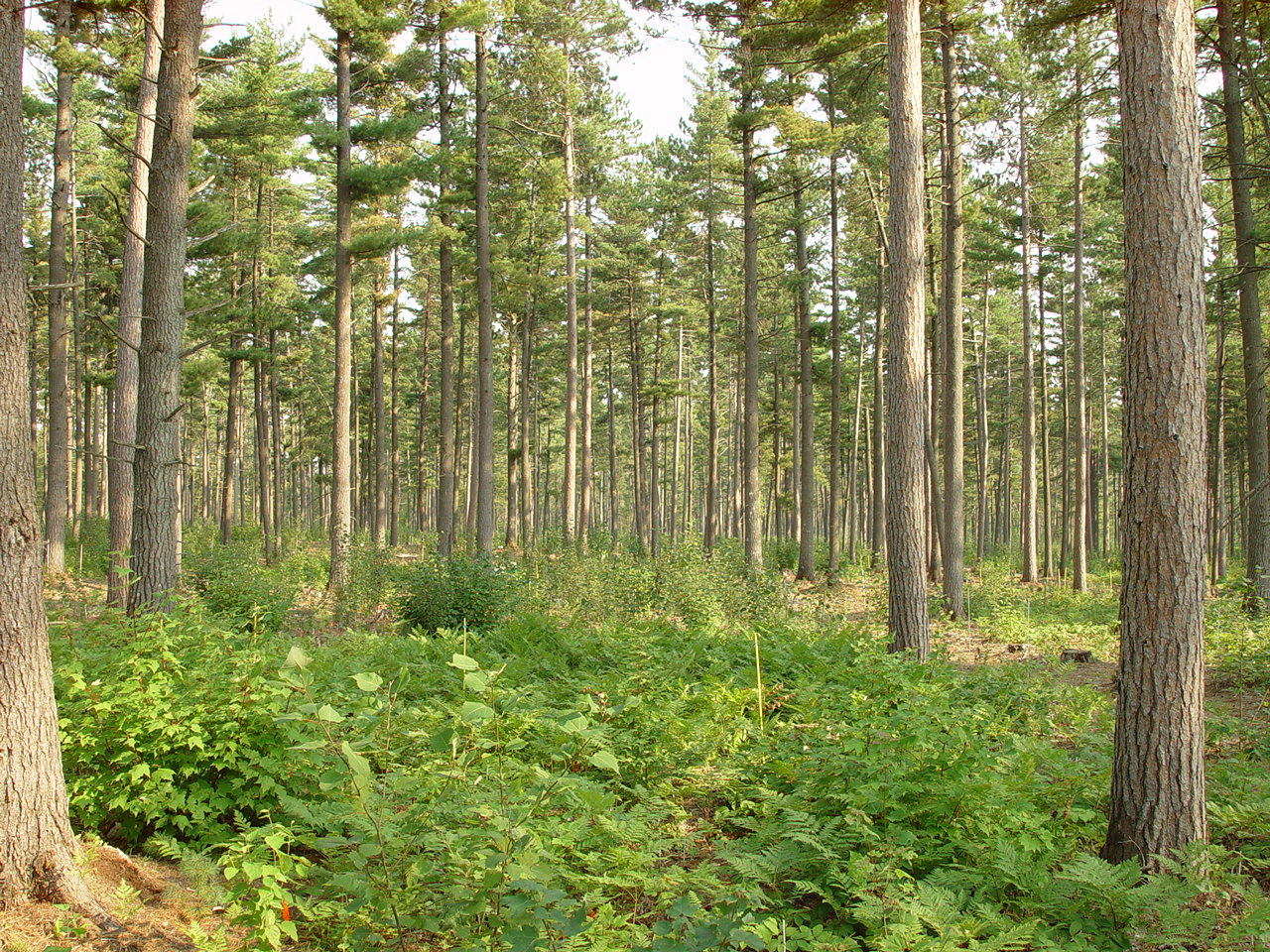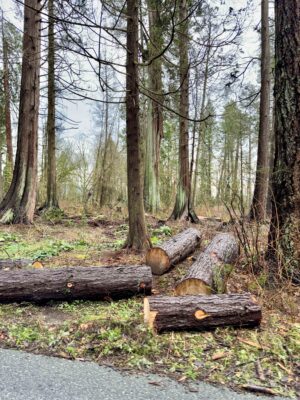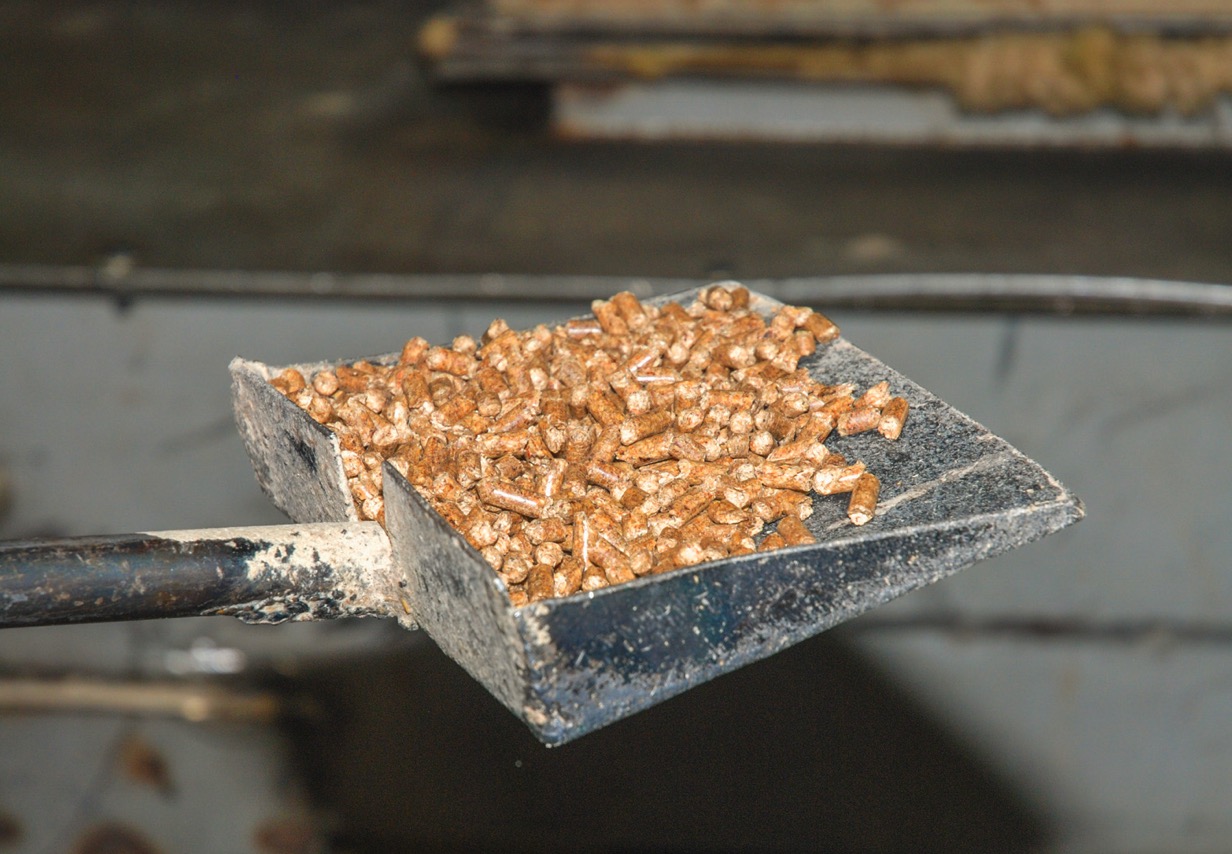 FAIRLEE, Vermont — Britton Lumber Company, a distributor of building materials throughout New England and Upstate New York and a manufacturer of Eastern White Pine boards, announced its planned acquisition of Denison-Cannon Company, a Billerica, Massachusetts-based distributor of building materials. The transaction is expected to close in February 2026. …Founded in 1920, Denison-Cannon serves packaging and pallet manufacturers and lumber dealers throughout the New England region. The acquisition expands Britton’s presence in Massachusetts and opens new markets in Rhode Island and Connecticut, currently served by Denison-Cannon. …Founded in 1946, Britton Lumber currently operates two divisions: Manufacturing, which produces Eastern White Pine boards in Bath, New Hampshire; and Wholesale Distribution, which sells building materials from existing warehouses in Fairlee, Vermont and Gray, Maine.
FAIRLEE, Vermont — Britton Lumber Company, a distributor of building materials throughout New England and Upstate New York and a manufacturer of Eastern White Pine boards, announced its planned acquisition of Denison-Cannon Company, a Billerica, Massachusetts-based distributor of building materials. The transaction is expected to close in February 2026. …Founded in 1920, Denison-Cannon serves packaging and pallet manufacturers and lumber dealers throughout the New England region. The acquisition expands Britton’s presence in Massachusetts and opens new markets in Rhode Island and Connecticut, currently served by Denison-Cannon. …Founded in 1946, Britton Lumber currently operates two divisions: Manufacturing, which produces Eastern White Pine boards in Bath, New Hampshire; and Wholesale Distribution, which sells building materials from existing warehouses in Fairlee, Vermont and Gray, Maine.
 One of Maine’s largest mills is again accepting Canadian wood from New Brunswick, after briefly halting shipments citing the cost of American tariffs. Woodland Pulp in Baileyville, Maine – situated on the banks of the St. Croix River a short drive across the border from St. Stephen – stopped purchases of New Brunswick timber in mid-October in the aftermath of higher US tariffs. Shortly after, it shut down completely for 26 days, citing a challenging global pulp market. That led to the temporary lay off of 144 employees. But now back in operation, Woodland Pulp says its full complement of staff is returning and that the decision was made to restart accepting Canadian fibre, including wood chips. …Spokesperson Scott Beal said it remains unclear how much the mill will purchase from New Brunswick sources going forward.. …Tariffs are paid by the importer. [to access the full story a Telegraph-Journal subscription is required]
One of Maine’s largest mills is again accepting Canadian wood from New Brunswick, after briefly halting shipments citing the cost of American tariffs. Woodland Pulp in Baileyville, Maine – situated on the banks of the St. Croix River a short drive across the border from St. Stephen – stopped purchases of New Brunswick timber in mid-October in the aftermath of higher US tariffs. Shortly after, it shut down completely for 26 days, citing a challenging global pulp market. That led to the temporary lay off of 144 employees. But now back in operation, Woodland Pulp says its full complement of staff is returning and that the decision was made to restart accepting Canadian fibre, including wood chips. …Spokesperson Scott Beal said it remains unclear how much the mill will purchase from New Brunswick sources going forward.. …Tariffs are paid by the importer. [to access the full story a Telegraph-Journal subscription is required]
 ALEXANDRIA, Va.
ALEXANDRIA, Va.



 ATLANTA — A proposed amendment to the Georgia Constitution would end sales taxes on timber, a major industry battered by mill closings and storms. House Majority Leader Chuck Efstration said a bipartisan group of legislators want to help protect “a cornerstone of the state’s rural economy.” “The timber tax cut is necessary because Georgia timber farmers are facing severe economic hardship following the closure of multiple sawmills in Georgia and significant losses in the aftermath of Hurricane Helene,” said Efstration, R-Mulberry, the sponsor of House Resolution 1000. “Georgia is a national leader in forestry, and I want to help this state’s rural economy and the livelihood of many Georgians.” Georgia’s forestry industry was the largest in the nation in 2021 based on harvest volume and product export values of nearly $4 billion, according to a report by the Georgia Forestry Association. But timber producers have suffered in recent years.
ATLANTA — A proposed amendment to the Georgia Constitution would end sales taxes on timber, a major industry battered by mill closings and storms. House Majority Leader Chuck Efstration said a bipartisan group of legislators want to help protect “a cornerstone of the state’s rural economy.” “The timber tax cut is necessary because Georgia timber farmers are facing severe economic hardship following the closure of multiple sawmills in Georgia and significant losses in the aftermath of Hurricane Helene,” said Efstration, R-Mulberry, the sponsor of House Resolution 1000. “Georgia is a national leader in forestry, and I want to help this state’s rural economy and the livelihood of many Georgians.” Georgia’s forestry industry was the largest in the nation in 2021 based on harvest volume and product export values of nearly $4 billion, according to a report by the Georgia Forestry Association. But timber producers have suffered in recent years. 


 Maine timber companies are in line to receive substantial incentives to manage forests and grow healthier, more valuable trees. A $32 million award to the New England Forestry Foundation was recently finalized by the US Department of Agriculture. The funding package, through the Advancing Markets for Producers initiative, replaces similar funding provided under the “climate smart commodities” program. While there are some adjustments to the program, it achieves the same purpose, according to the foundation Deputy Director Andi Colnes. The grant will largely subsidize commercial and pre-commercial thinning, Colnes said. It will also provide funding to expand market opportunities, particularly for mass timber construction, she added. …According to Colnes, the program is able to cover about 50,000 acres of New England forests, mostly commercial timberland in Maine. The foundation said 23 commercial, conservation and public forest owners are already enrolled in the project.
Maine timber companies are in line to receive substantial incentives to manage forests and grow healthier, more valuable trees. A $32 million award to the New England Forestry Foundation was recently finalized by the US Department of Agriculture. The funding package, through the Advancing Markets for Producers initiative, replaces similar funding provided under the “climate smart commodities” program. While there are some adjustments to the program, it achieves the same purpose, according to the foundation Deputy Director Andi Colnes. The grant will largely subsidize commercial and pre-commercial thinning, Colnes said. It will also provide funding to expand market opportunities, particularly for mass timber construction, she added. …According to Colnes, the program is able to cover about 50,000 acres of New England forests, mostly commercial timberland in Maine. The foundation said 23 commercial, conservation and public forest owners are already enrolled in the project. NORTH CAROLINA — After reviewing public comments, the
NORTH CAROLINA — After reviewing public comments, the 

 Southern Pine lumber exports (treated and untreated) are almost equal to 2024 year to date through October 2025 at 488 MMBF, according to October 2025 data from the USDA’s Foreign Agriculture Services’ Global Agricultural Trade System. October 2025’s 60 MMBF of exports were up 47% over October 2024 and up 33% compared to September 2025. When looking at the report by dollar value, Southern Pine exports are up 4% YTD ($190 million) compared to 2024. Meanwhile, the October value of $25 million is the highest mark since June 2022, when the value hit $29 million. Mexico leads the way YTD 2025 at $56 million, followed by the Dominican Republic at $39 million, and India at $18 million. Treated lumber exports, meanwhile, are down 4% through the first 10 months of the year compared to 2024. The Leeward-Windward Islands market leads the way through October at $18 million, followed by Jamaica at $16 million, and Belize at $10 million. Softwood lumber imports are running 8% behind 2024 levels.
Southern Pine lumber exports (treated and untreated) are almost equal to 2024 year to date through October 2025 at 488 MMBF, according to October 2025 data from the USDA’s Foreign Agriculture Services’ Global Agricultural Trade System. October 2025’s 60 MMBF of exports were up 47% over October 2024 and up 33% compared to September 2025. When looking at the report by dollar value, Southern Pine exports are up 4% YTD ($190 million) compared to 2024. Meanwhile, the October value of $25 million is the highest mark since June 2022, when the value hit $29 million. Mexico leads the way YTD 2025 at $56 million, followed by the Dominican Republic at $39 million, and India at $18 million. Treated lumber exports, meanwhile, are down 4% through the first 10 months of the year compared to 2024. The Leeward-Windward Islands market leads the way through October at $18 million, followed by Jamaica at $16 million, and Belize at $10 million. Softwood lumber imports are running 8% behind 2024 levels.
 ST. LOUIS — What is the life cycle of a building? Each year, in the United States, new home construction accounts for 50 million tons of carbon emissions. The majority stem from harvesting, manufacturing and transporting building materials — from lumber and masonry to glass and tile to roofing and mechanical systems. But what happens at the end of the cycle? When a building is no longer inhabitable or needed, what happens to all the energy invested in those materials? “It’s demolished,” Hongxi Yin said. “It goes to the landfill.” Yin, an expert on sustainable construction, is the InCEES professor in advanced building systems and architectural design in the Sam Fox School of Design & Visual Arts at Washington University in St. Louis. Over the last decade, he has led a series of research studios exploring ways to improve building efficiency, supply chains and construction processes.
ST. LOUIS — What is the life cycle of a building? Each year, in the United States, new home construction accounts for 50 million tons of carbon emissions. The majority stem from harvesting, manufacturing and transporting building materials — from lumber and masonry to glass and tile to roofing and mechanical systems. But what happens at the end of the cycle? When a building is no longer inhabitable or needed, what happens to all the energy invested in those materials? “It’s demolished,” Hongxi Yin said. “It goes to the landfill.” Yin, an expert on sustainable construction, is the InCEES professor in advanced building systems and architectural design in the Sam Fox School of Design & Visual Arts at Washington University in St. Louis. Over the last decade, he has led a series of research studios exploring ways to improve building efficiency, supply chains and construction processes. 


 Bamboo tissue’s green image fades once you factor in coal-powered manufacturing. Bamboo tissue paper produced in China has become a popular option for shoppers looking to reduce their environmental impact. Despite its green reputation, new research suggests these products may not deliver the climate advantages many consumers expect. In some cases, bamboo tissue may even have a greater environmental footprint than tissue made in the United States. A recent
Bamboo tissue’s green image fades once you factor in coal-powered manufacturing. Bamboo tissue paper produced in China has become a popular option for shoppers looking to reduce their environmental impact. Despite its green reputation, new research suggests these products may not deliver the climate advantages many consumers expect. In some cases, bamboo tissue may even have a greater environmental footprint than tissue made in the United States. A recent 
 The Minnesota Department of Natural Resources aerially surveyed more than 13.5 million acres last year, checking for forest damage across the state’s forestland. Its findings are included in the recently released 2025 Forest Health Annual Report. Brian Schwingle, forest health program coordinator, said the annual survey and report is important because it tracks trends and reveals what is impacting trees, allowing the managers to make decisions for healthier, more resilient forests. “The two biggest tree health stories in 2025 in Minnesota were the derecho, the big blowdown in Bemidji, and the three big wildfires in northeast Minnesota in May,” he said, noting prior spruce budworm damage helped fuel the fires. In July, a derecho damaged 11,600 acres in and around Bemidji. Derecho, a Spanish word for straight, is a widespread, straight-line windstorm associated with a band of fast-moving thunderstorms. They can leave serious damage in their wake.
The Minnesota Department of Natural Resources aerially surveyed more than 13.5 million acres last year, checking for forest damage across the state’s forestland. Its findings are included in the recently released 2025 Forest Health Annual Report. Brian Schwingle, forest health program coordinator, said the annual survey and report is important because it tracks trends and reveals what is impacting trees, allowing the managers to make decisions for healthier, more resilient forests. “The two biggest tree health stories in 2025 in Minnesota were the derecho, the big blowdown in Bemidji, and the three big wildfires in northeast Minnesota in May,” he said, noting prior spruce budworm damage helped fuel the fires. In July, a derecho damaged 11,600 acres in and around Bemidji. Derecho, a Spanish word for straight, is a widespread, straight-line windstorm associated with a band of fast-moving thunderstorms. They can leave serious damage in their wake.
 Tribes in Wisconsin and beyond are opposing the Trump administration’s proposal to end protections for millions of acres of roadless areas on national forest land. …But Wisconsin Ojibwe tribes said the move was conducted without consultation and threatens natural resources they rely on, said Conrad St. John, chairman of the St. Croix Chippewa Indians of Wisconsin. “They want to log it for the mature timber… which is revenue-based to create money for big corporations,” St. John said. …In Wisconsin, roadless areas account for less than 5 percent of the national forest’s 1.5 million acres. But Dylan Bizhikiins Jennings said they make up a vital portion of the region’s national forests, saying the administration’s actions show disregard for tribal sovereignty and treaty rights. He’s director of public information for the Great Lakes Indian Fish and Wildlife Commission, which represents 11 tribes in Wisconsin, Michigan and Minnesota.
Tribes in Wisconsin and beyond are opposing the Trump administration’s proposal to end protections for millions of acres of roadless areas on national forest land. …But Wisconsin Ojibwe tribes said the move was conducted without consultation and threatens natural resources they rely on, said Conrad St. John, chairman of the St. Croix Chippewa Indians of Wisconsin. “They want to log it for the mature timber… which is revenue-based to create money for big corporations,” St. John said. …In Wisconsin, roadless areas account for less than 5 percent of the national forest’s 1.5 million acres. But Dylan Bizhikiins Jennings said they make up a vital portion of the region’s national forests, saying the administration’s actions show disregard for tribal sovereignty and treaty rights. He’s director of public information for the Great Lakes Indian Fish and Wildlife Commission, which represents 11 tribes in Wisconsin, Michigan and Minnesota. President Donald Trump’s administration has set in motion efforts to repeal the Roadless Rule, a 2001 administrative mandate that put 45 million acres of the least developed forest land under protection from logging and construction of roads. As the nation observes the rule’s 25th anniversary, Virginia’s federal lawmakers and advocates are calling for its preservation and say hundreds of thousands of acres of forests could be at stake if it is axed. The federal government has framed the proposed repeal as necessary for forest management against wildfires. …Environmental advocates have said since last summer that repealing the rule will lead to land degradation, sediment pollution, and create risks to clean water sources. It would also open up large swaths of the 400,000 acres of the protected forestland in Virginia to logging and potential new roads.
President Donald Trump’s administration has set in motion efforts to repeal the Roadless Rule, a 2001 administrative mandate that put 45 million acres of the least developed forest land under protection from logging and construction of roads. As the nation observes the rule’s 25th anniversary, Virginia’s federal lawmakers and advocates are calling for its preservation and say hundreds of thousands of acres of forests could be at stake if it is axed. The federal government has framed the proposed repeal as necessary for forest management against wildfires. …Environmental advocates have said since last summer that repealing the rule will lead to land degradation, sediment pollution, and create risks to clean water sources. It would also open up large swaths of the 400,000 acres of the protected forestland in Virginia to logging and potential new roads.


 STARKVILLE, Mississippi — For all the major investments and structural changes in 2025, marked by significant sawmill expansions, shifting market dynamics and continued pressure in the pulp and paper sector, Mississippi’s timber industry observed limited monetary change. The state’s total timber value for 2025 is estimated to be $1.47 billion, which is down 1% from last year. This year’s harvest amounted to 36.4 million tons of timber products, which is down slightly from last year based on timber severance tax receipts. The value of standing timber paid to landowners as stumpage was $660 million, a 9% decline from 2024. The harvest and trucking industries, however, added $807 million to timber’s value in 2025, which was 7% more than last year. Eric McConnell, associate professor of forest business, said the industry experienced a sizable increase in the small pine sawtimber. …The forestry industry also faced pulp and paper headwinds.
STARKVILLE, Mississippi — For all the major investments and structural changes in 2025, marked by significant sawmill expansions, shifting market dynamics and continued pressure in the pulp and paper sector, Mississippi’s timber industry observed limited monetary change. The state’s total timber value for 2025 is estimated to be $1.47 billion, which is down 1% from last year. This year’s harvest amounted to 36.4 million tons of timber products, which is down slightly from last year based on timber severance tax receipts. The value of standing timber paid to landowners as stumpage was $660 million, a 9% decline from 2024. The harvest and trucking industries, however, added $807 million to timber’s value in 2025, which was 7% more than last year. Eric McConnell, associate professor of forest business, said the industry experienced a sizable increase in the small pine sawtimber. …The forestry industry also faced pulp and paper headwinds.  FLORIDA – Florida state officials warned of heightened wildfire risks across the state as dry conditions were expected to continue into 2026. “I’ve been with the agency a long time, and this is the driest winter that I can remember in quite a while,” Florida Forest Service Director Rick Dolan said during a Friday press conference. The number of wildfires had increased significantly, with more than 3,000 reported in 2025 compared to approximately 2,000 in 2024. This surge came months before Florida’s typical peak wildfire season, which usually occurs between April and June. Florida Commissioner of Agriculture Wilton Simpson emphasized that human activity was a major concern. “The majority of those fires are started by backyard fires, arson, things of that nature,” Simpson said. “We need everyone to be diligent as we come into the new year with the drier conditions.”
FLORIDA – Florida state officials warned of heightened wildfire risks across the state as dry conditions were expected to continue into 2026. “I’ve been with the agency a long time, and this is the driest winter that I can remember in quite a while,” Florida Forest Service Director Rick Dolan said during a Friday press conference. The number of wildfires had increased significantly, with more than 3,000 reported in 2025 compared to approximately 2,000 in 2024. This surge came months before Florida’s typical peak wildfire season, which usually occurs between April and June. Florida Commissioner of Agriculture Wilton Simpson emphasized that human activity was a major concern. “The majority of those fires are started by backyard fires, arson, things of that nature,” Simpson said. “We need everyone to be diligent as we come into the new year with the drier conditions.”

 New Hampshire and its counties may soon be barred from enrolling publicly owned lands in carbon sequestration programs. “We don’t see sequestration as a traditional use,” said Rep. Mike Ouellet, a Colebrook Republican, at a hearing before the House Committee on Municipal and County Government on Tuesday. The committee later voted, 13-1, to recommend passage of House Bill 1205, which would prohibit “carbon sequestration projects” on state- and county-owned lands. …No county- or state-owned land is currently listed on the registry of New Hampshire carbon sequestration projects. But the long duration of forest carbon contracts and the possibility they would impose restrictions on land use were two reasons bill proponents cited for preventing them on public lands in the future. …Others said timber harvest could be an important source of revenue for counties and the state, and worried the contracts would have a negative impact on the timber industry.
New Hampshire and its counties may soon be barred from enrolling publicly owned lands in carbon sequestration programs. “We don’t see sequestration as a traditional use,” said Rep. Mike Ouellet, a Colebrook Republican, at a hearing before the House Committee on Municipal and County Government on Tuesday. The committee later voted, 13-1, to recommend passage of House Bill 1205, which would prohibit “carbon sequestration projects” on state- and county-owned lands. …No county- or state-owned land is currently listed on the registry of New Hampshire carbon sequestration projects. But the long duration of forest carbon contracts and the possibility they would impose restrictions on land use were two reasons bill proponents cited for preventing them on public lands in the future. …Others said timber harvest could be an important source of revenue for counties and the state, and worried the contracts would have a negative impact on the timber industry. A community-led survey coordinated by the Southern Environmental Law Center across parts of the southern United States has documented concerns about pollution linked to wood pellet manufacturing facilities. The survey focused on areas where residents live near large biomass plants, including a facility in Northampton County, North Carolina. Wood pellet plants process pellets that are exported overseas…where they are burned to generate electricity. While often described as a renewable energy source, the manufacturing process produces dust and emissions that residents say affect air quality and daily life. …[Survey] participants visited households near pellet plants to gather information about health concerns, environmental conditions and quality-of-life impacts associated with nearby industrial activity. According to the survey findings, residents reported respiratory problems, persistent dust, noise and increased industrial traffic. These concerns were most frequently recorded in rural communities and in areas with lower-than-average household incomes.
A community-led survey coordinated by the Southern Environmental Law Center across parts of the southern United States has documented concerns about pollution linked to wood pellet manufacturing facilities. The survey focused on areas where residents live near large biomass plants, including a facility in Northampton County, North Carolina. Wood pellet plants process pellets that are exported overseas…where they are burned to generate electricity. While often described as a renewable energy source, the manufacturing process produces dust and emissions that residents say affect air quality and daily life. …[Survey] participants visited households near pellet plants to gather information about health concerns, environmental conditions and quality-of-life impacts associated with nearby industrial activity. According to the survey findings, residents reported respiratory problems, persistent dust, noise and increased industrial traffic. These concerns were most frequently recorded in rural communities and in areas with lower-than-average household incomes. The U.S. Endowment for Forestry and Communities (the Endowment) has announced a new collaboration with the Georgia Institute of Technology. This partnership aims to address the far-reaching social, economic and environmental impacts of pulp and paper mill closures across the United States, particularly in the rural South, where these mills have long served as economic anchors. The Endowment and Georgia Tech’s Aerospace Systems Design Laboratory (ASDL) are developing an integrated decision-making dashboard to help policymakers, community leaders and industry stakeholders quantify the effects of mill closures and identify data-driven pathways to offset them through the sustainable use of forestry residues to produce bioenergy, renewable diesel, and sustainable aviation fuel (SAF). Over the past decade, nearly 50 paper mills have shut down nationwide, including major facilities in Georgia, South Carolina, Louisiana, Texas and Ohio.
The U.S. Endowment for Forestry and Communities (the Endowment) has announced a new collaboration with the Georgia Institute of Technology. This partnership aims to address the far-reaching social, economic and environmental impacts of pulp and paper mill closures across the United States, particularly in the rural South, where these mills have long served as economic anchors. The Endowment and Georgia Tech’s Aerospace Systems Design Laboratory (ASDL) are developing an integrated decision-making dashboard to help policymakers, community leaders and industry stakeholders quantify the effects of mill closures and identify data-driven pathways to offset them through the sustainable use of forestry residues to produce bioenergy, renewable diesel, and sustainable aviation fuel (SAF). Over the past decade, nearly 50 paper mills have shut down nationwide, including major facilities in Georgia, South Carolina, Louisiana, Texas and Ohio. WISCONSIN — Hayward is the “first choice” for a German company considering building a $1.5 billion plant to convert wood and wood waste into sustainable aviation fuel, but the company also is talking to Minnesota, Michigan and other states, said Matthias Mueller, CEO of Synthec Fuels. …Hayward has good access to energy and to rail and highway transportation, it is not far from the Minneapolis and Chicago airports, and it is home to Synthec’s partner Johnson Timber, Mueller said. European investors have committed to providing $1.5 billion to build that plant, but Wisconsin lawmakers are working to make the state more attractive with the Forestry Revitalization Act that would provide $210 million in tax credits and loans. …The proposed plant annually would use 890,000 tons of woody biomass to produce 48 million gallons of sustainable aviation fuel.
WISCONSIN — Hayward is the “first choice” for a German company considering building a $1.5 billion plant to convert wood and wood waste into sustainable aviation fuel, but the company also is talking to Minnesota, Michigan and other states, said Matthias Mueller, CEO of Synthec Fuels. …Hayward has good access to energy and to rail and highway transportation, it is not far from the Minneapolis and Chicago airports, and it is home to Synthec’s partner Johnson Timber, Mueller said. European investors have committed to providing $1.5 billion to build that plant, but Wisconsin lawmakers are working to make the state more attractive with the Forestry Revitalization Act that would provide $210 million in tax credits and loans. …The proposed plant annually would use 890,000 tons of woody biomass to produce 48 million gallons of sustainable aviation fuel. 